Seasons – February 2023
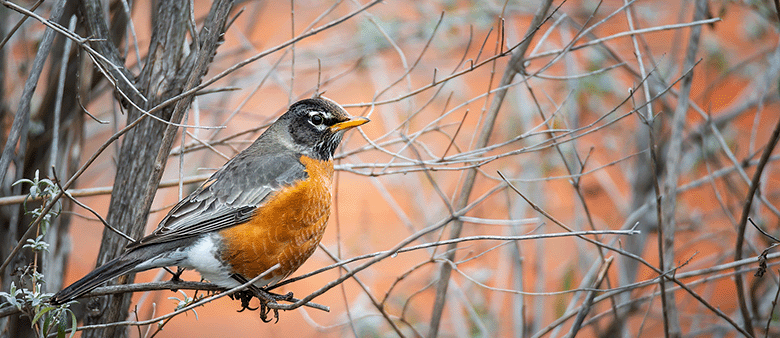
From the Plateau Land & Wildlife Management Team
Freezing temperatures and ice storms pushed large portions of the state to a standstill earlier this month. For many, it was the second time in three years that a February deep freeze brought unusually cold temperatures to Texas.
With the worst of 2023’s cold weather (hopefully) behind us, this time of year offers many benefits for management activities. Texans don’t have to endure scorching heat and humidity this time of year and mosquitoes and ticks are still a few weeks away. So, head outside to make the most of this month!
As you recover from the icy temperatures and begin the process of post-storm cleanup, take a moment to review our helpful considerations and tips for landowners including articles and blogs from our expert team of biologists and property tax consultants, attorneys from Braun and Gresham LLC, real estate professionals, and other resources. Read blogs and articles covering open space valuations, property tax deadlines, invitations to virtual events covering your property tax valuation options, and more.
Until next Seasons,
The Plateau Team
Table of Contents
The Economic Value of Open-Space: A Refresher On Why It Matters
Spring Bird Breeding Survey Preview
Service Spotlight: Winter Webinar Series
Guest Feature: 2023 Texas Legislature Landowner Issues
Guest Feature: Top Legal Tools for Protecting Your Property
News for Texas Landowners
The Economic Value of Open-Space: A Refresher On Why It Matters
By Shane Kiefer, Chief Operating Officer, Director Of Ecological Services, Certified Wildlife Biologist, Senior Property Tax Consultant
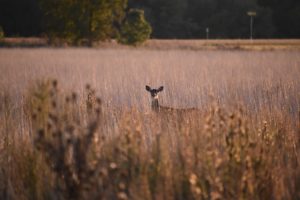 When tax bills began arriving in the fall, you were no doubt reminded of the economic benefit of having a wildlife or agricultural valuation in place. Whenever the Texas Legislature is coming into session, we at Plateau are often asked, “Are they going to take away my wildlife or agricultural valuation?” You are no doubt aware of many of the benefits of open-space, but if you find yourself or someone else asking these questions, here’s a refresher.
When tax bills began arriving in the fall, you were no doubt reminded of the economic benefit of having a wildlife or agricultural valuation in place. Whenever the Texas Legislature is coming into session, we at Plateau are often asked, “Are they going to take away my wildlife or agricultural valuation?” You are no doubt aware of many of the benefits of open-space, but if you find yourself or someone else asking these questions, here’s a refresher.
There is strong protection built into the way the open-space (ag/wildlife valuation) law is structured, which should ease your mind a little. The laws that allow for a special valuation on open-space agricultural and wildlife lands are required by the Texas Constitution Article VIII, §1-d-1, which says that the legislature “SHALL provide by general law for taxation of open-space land devoted to farm, ranch, or wildlife management purposes on the basis of its productive capacity…” (emphasis added).
This means that the legislature cannot simply pass a law to eliminate these special valuations. They can change the rules and requirements, but they cannot eliminate it without amending the constitution – only the people of Texas can do that.
The premise that landowners enjoying the benefits of wildlife and agricultural valuations are not paying their fair share is a flawed one. To start, these are not tax “exemptions” they are special valuations designed to tax land on its productive capacity instead of its market value. The truth is that owners of open-space land are helping to make up for deficits in delivering services to residential property. According to a compilation of studies from across the country by the American Farmland Trust, the median cost to provide services to working and open-space lands is only $0.37 for every dollar raised in tax revenue from those lands. This ratio is also known as the Cost of Community Services (COCS) ratio. The open-space land ratio is comparable to the ratio for commercial lands ($0.29/$1.00). In contrast, providing services to residential land costs $1.19 for every dollar raised. That means it costs more to provide services to all those people and houses than they pay in property taxes.
Texas lands are no different. Three counties in Texas had ratios ranging from 0.18/$1.00-0.33/$1.00, which means that Texas open-space land is even more cost-efficient than the national median. Despite the substantially higher revenues that residential use brings in over open-space land with those special valuations on it, the infrastructure and service needs for all that open-space land are much lower. As David Langford of the Texas Wildlife Association has said: “cows don’t go to school, songbirds don’t call 9-1-1, and crops don’t require the ‘jaws of life’ or Medivac helicopters after Saturday night smashups on the freeway.”
And remember, you are still paying market value on all the structures (if any are present) and the associated residential land on your property. The only land receiving the tax break is that used for wildlife or agricultural purposes and that land requires virtually no government services.
Of course, there are lots of intangible and difficult to quantify reasons to support open-space including improved water quality, wildlife habitat, scenic views, etc. As wildlife biologists, these mean quite a bit to the Plateau team. As taxpayers, though, it is nice to see that the economics make sense as well.
Remember to encourage your representatives to support open-space. Even though they cannot eliminate ag/wildlife valuations without a constitutional amendment, they can adjust the rules to make it more difficult to qualify. And for anyone who wants to do away with them, remember that if that occurs, lots of land will hit the market with the resulting rapidly increasing taxes, driving prices (and tax revenues) down. And never forget that conversion of land to residential use may result in more tax revenue, but that comes with higher costs to the state and local governments who provide essential services, erasing any benefit to government coffers.
This article was originally published in a January 2019 edition of Seasons.
If you have questions or would like more information about appropriate Wildlife Management activities for your property, please contact us at (512) 894-3479 or [email protected].
Back to TopBack to Top
Spring Bird Breeding Survey Preview
Learn what birds are migrating through your habitat this spring!
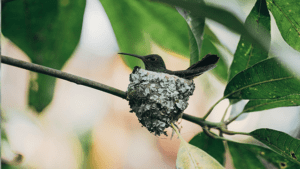 Spring Breeding Bird Surveys are conducted from mid-March through late June, which are the peak breeding and migratory months. These surveys are a great opportunity for landowners to practice their birding skills and tour their property with a professional wildlife biologist while visiting a number of bird survey stations to detect birds either through visual or auditory observation. Detailed reports are produced with all species and numbers observed, brief habitat and location descriptions for each station. Annual surveys can be analyzed over several years to show trends and improvements in species observed, indicating improved habitat through your efforts.
Spring Breeding Bird Surveys are conducted from mid-March through late June, which are the peak breeding and migratory months. These surveys are a great opportunity for landowners to practice their birding skills and tour their property with a professional wildlife biologist while visiting a number of bird survey stations to detect birds either through visual or auditory observation. Detailed reports are produced with all species and numbers observed, brief habitat and location descriptions for each station. Annual surveys can be analyzed over several years to show trends and improvements in species observed, indicating improved habitat through your efforts.
A Plateau Spring Breeding Bird Survey:
- Qualifies as a Wildlife Management activity in just one morning
- Allows landowners to monitor long-term trends of species composition and abundance
- Establishes listening stations within diverse habitat locations throughout your property for observation
- Records both the number and the type of different species of birds that are seen or heard at each station in a field log included in a detailed report
- Offers wildlife management recommendations for current and potential activities which may improve overall species abundance and diversity
If you’re interested in learning more about Plateau’s Spring Breeding Bird Survey, or would like to schedule one for your property call (512) 894-3479 or email [email protected].
Service Spotlight: 2023 Winter Webinar Series

Plateau’s 2023 Winter Webinar Series
Ready to learn more about Wildlife Management options for your property?
Join us 5:45 – 7:00 pm each Thursday evening from now until March 14 as Plateau Land Specialists and Staff Biologists host FREE educational webinars for landowners. Whether you’re a new landowner or already in Ag or Timber, everyone is invited to join us for our 2023 Wildlife Exemption Webinar Series. Connect with experts and learn how to make the switch to a Wildlife Management Exemption.
Listen along from your computer as our experts cover a variety of land ownership, wildlife management, and Texas ag exemption topics. Get answers to your questions about making the switch, learn about filing deadlines, requirements for activities and record-keeping, and more.
Special Landowner Topics Presented By: AgriLife, TREAD Coalition, Big Thicket Beekeeping, Capital Farm Credit, NRCS, The Modern Texas Naturalist, & Braun & Gresham.
View topics and featured speakers and register for upcoming events by visiting Plateau’s Event Directory.
For questions or more information, contact [email protected] or (512) 894-3479.
Guest Feature: 2023 Texas Legislature Landowner Issues
Presented by Jessica Karlsruher, Executive Director of TREAD Coalition
The 88th Legislature’s regular session began Jan. 10 and runs through May 29. Jessica Karlsruher, Executive Director of TREAD Coalition, details hot button issues that are up for discussion during the 2023 session. From the state budget to energy infrastructure to water rights for Texans, TREAD covers what Texans need to know about this biennial lawmaking session.
About TREAD Coalition: The Texas Real Estate Advocacy & Defense Coalition (TREAD) is a bipartisan, member-based advocacy association that advocates for and defends Texas landowner rights on the state and local levels. TREAD monitors relevant issues in the Texas Legislature, such as property taxes, water rights, eminent domain and more. TREAD partners with professionals and organizations that advocate sound public policy and maintain a bipartisan commitment to evaluate and prioritize issues through good science and economics. TREAD is a voice of reason representing landowners at the Capitol. Our rights are individual, but it takes a coalition to defend them. That’s where TREAD comes in. You can get involved by 1) becoming a member, 2) giving to the advocacy and education, 3) giving to the PAC to keep legislators in office who support TREAD’s mission and want to protect landowners. Learn more at: https://treadcoalition.org
Guest Feature: Top Legal Tools for Protecting Your Property
Presented Braun & Gresham Attorney and Counselor, Margaret Menicucci
Braun & Gresham Attorney and Counselor, Margaret Menicucci, was invited to present a special feature in Plateau Land & Wildlife Management’s Winter 2023 Wildlife Exemption Webinar Series. During this presentation, Margaret outlines the top four legal tools for landowners to protect their property including: 1) business entities, 2) guest waivers and leases, 3) estate planning, and 4) deed restrictions and conservation easements. For more information about any of the legal tools outlined by Margaret, please call (512) 894-5426.
News for Texas Landowners
But What About the Trees? The Rundown on Texas’s Icy “Oakpocalypse”
Article by Texas Monthly

Cra-a-ck. The occasional resounding snap of falling branches (and portions of trees much too big to be called branches) broke up the wintry calm in Central Texas Wednesday. Many woke to an icy wonderland of trees bedazzled and seemingly dripping with the night’s precipitation—a watery, sleety mix sometimes both ambitiously and wrongly called “snow.” Two years out from a harrowing and deadly winter freeze, Texans understandably worried and tweeted and texted about the power grid and the roads and the grocery store lines. They shared funny videos, à la Seattle ice chaos, on TikTok, and they took “Who lost power?” polls in group chats. But they also talked about the trees. Because, what about the trees? Roads and yards were littered with fallen limbs….
Texas Legislature 101: Understanding the state government and how it passes laws
Article by Texas Tribune

Here’s a rundown of how a bill becomes a law, how the Texas Legislature works and the power players who keep things moving under the Pink Dome. The first time Shera Eichler entered the Texas Capitol to work as a legislative aide in 2002, she was nervous. She didn’t have much experience at the Capitol, apart from a visit through a school field trip. But she was quickly promoted about a month later to chief of staff for a Republican state representative due to a vacancy. Now, Eichler, a government affairs consultant, knows the legislative process well, having worked for that representative for about 18 years. She credits it to her willingness to ask questions and to having seasoned mentors.
One of Texas’s Coolest Caves Lies Beneath an Upscale San Antonio Neighborhood
By Megan Coley for Texas Monthly
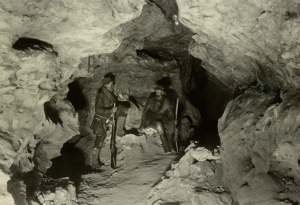
It’s a typical weekend in the upscale neighborhood of Oak Park, three miles from the San Antonio airport, and the shopping center off busy Nacogdoches Road is filled with customers milling about. They leave the dry cleaners, finagling with the blowing sheets of plastic around skirts and suits, and load cars with groceries from H-E-B. Outside Starbucks, a group of women laugh on the sunny patio. Just a few blocks away, a wrought-iron fence surrounds a small plot of land between Camellia Lane and Hillview Drive. You’d never know it, but beneath this spot lie more than five thousand feet of subterranean mazes. One of Texas’s first show caves, the place once hosted fortune tellers, dance performances, and a zip line. Over the centuries, it’s been visited by amateur spelunkers, scientists, and more than a few sneaky teenagers. This cavern is home to at least two endangered species that live nowhere else on earth. More recently, Elon Musk even entered the picture. Welcome to the Robber Baron Cave.
Case Addresses Dedication of Public Roads
Article by Tiffany Lashmet, Ag Law Blog
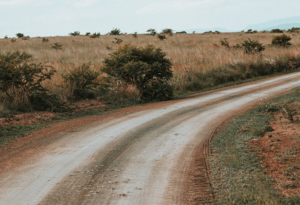
A recent San Antonio Court of Appeals case, Holly v. Newberry Ranches of Texas, offers a good overview of the law surrounding dedication of public roads. The Hollys own 1,500 acres in Val Verde County. This property was acquired from two deeds, one in 2004 and one in 2005. Both deeds reference “a county-maintained gravel road” known as Arledge Road. In 2012, the Hollys protested the inclusion of Arledge Road in the Val Verde County Road map. As part of that protest, a jury of view issued a report declaring Arledge Road was not a county road and recommended it be removed from the county road map….
After a Long Saga, a Weird Little Texas Cave Critter Is Staying on the Endangered Species List
Article by Texas Monthly
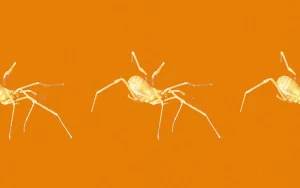
More than three thousand caves lie beneath the Texas Hill Country. Today, scientists and spelunkers have explored and mapped most of them. That wasn’t the case in the late 1950s, when James Reddell, an English major at the University of Texas, joined the school’s speleological society and began crawling into caves after class and on weekends. He enjoyed the physical challenge of climbing and sliding through narrow passageways and labyrinthine tunnels with only the light of his headlamp, but what really thrilled him was the chance to see spaces and creatures that were virtually unknown. While explorers had been mapping land in Texas for centuries, and collecting and identifying plants and animals aboveground, caves were essentially a blank slate. He ultimately turned his passion into a career when he became the curator of cave invertebrates for UT’s insect collection, and for a time he was probably the only cave biologist in Texas.
Oak wilt poses a threat to Texas trees after ice storm, arborists warn
Article by KXAN

AUSTIN (KXAN) — Destruction wrought by an early-February ice storm locally felled many of our local trees and greatly reduced their canopies, opening wounds that could lead to more dead trees, arborists warn. This threat is an annual one: oak wilt, a fungal infection that kills oaks by preventing water transportation through the tree. It spreads via contaminated tools, airborne spores, root systems and insects, often entering a tree through cuts and open wounds. It is an invasive, vascular infection, similar to the chestnut blight and Dutch elm disease. Karl Flocke, a woodland ecologist with the Texas A&M Forest Service, says that we are currently in the oak wilt transmission season, which runs from February to June. Master Arborist Vincent Debrock, co-owner of Heritage Tree Care, says that changing weather conditions can spread the fugus…
Will DFW’s thirst flood ‘Texas rainforest’? Inside the fight over Marvin Nichols Reservoir
Article by JESS HARDIN for Fort Worth Star Telegram
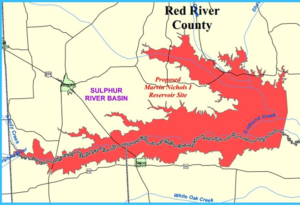
After parking his white Ford pickup truck in a pasture of knee-high grass, Jim Marshall trudges toward it: a post oak tree with branches so long they bend toward the ground and nearly meet the grass on either side. Marshall shields his eyes from the afternoon sun and stops under the tree’s shade. He points to a hefty bough cradling a nest as big as an armchair. A family of bald eagles made its home here, in the middle of Marshall’s 917 acres. He bends down and picks up an eagle feather.
Even though his 7-year-old granddaughter collects feathers, he doesn’t pocket it. It is illegal to possess or use the parts of the federally protected eagles. If water planners in Dallas-Fort Worth get their wish, this massive oak will wither into skeletal driftwood in the middle of Marvin Nichols Lake….
100 years old and going strong: Celebrating Texas’s diverse system of state parks
Report by KVUE

AUSTIN, Texas — Get away from the bustle of Austin and Central Texas and escape to the serenity and the grandeur of nature, Texas style. Our state’s constantly changing landscapes, from Gulf shore beaches to towering mountains to gently rolling grasslands, offer variety and contrast, perhaps best captured in the 76 state parks located in every corner of Texas and in lots of places in between. The park system is 100 years old in 2023, a gift to the people of Texas and their neighbors from Gov. Pat Neff, who signed the law creating the Texas park system in 1923. “Gov. Neff saw a need to establish public spaces and public campgrounds so that people who were traveling across the state, especially in some of the more remote, rural [parts] of the state…
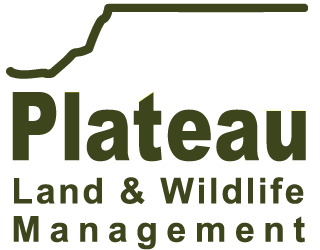





Sorry, the comment form is closed at this time.